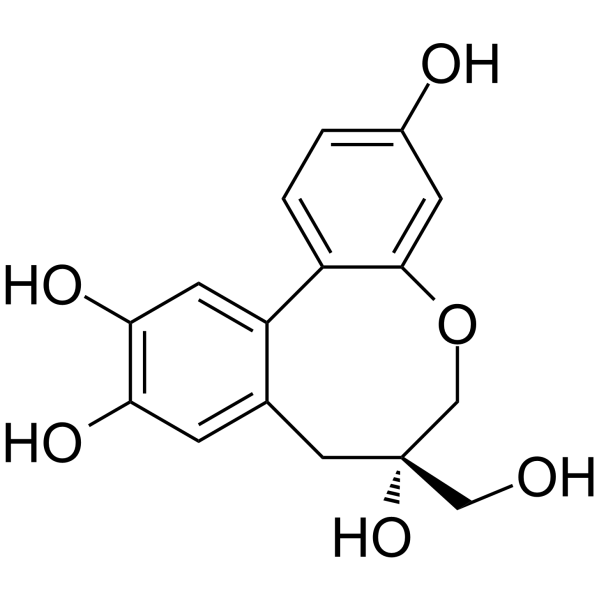All AbMole products are for research use only, cannot be used for human consumption.

Protosappanin B is a polyphenol substance extracted from Sappanwood, which has anti-tumor effect. In human bladder cancer cells, it can induce apoptosis by arresting G1 phase of cell cycle.
| Molecular Weight | 304.29 |
| Formula | C16H16O6 |
| CAS Number | 102036-29-3 |
| Solubility (25°C) | DMSO ≥ 40 mg/mL |
| Storage | 4°C, protect from light, dry, sealed |
[4] Xihua Yang, et al. Antitumor Effects of Purified Protosappanin B Extracted From Lignum Sappan
| Related Apoptosis Products |
|---|
| Coenzyme Q0
Coenzyme Q0 (CoQ0) is a potent, oral active ubiquinone compound. Coenzyme Q0 induces apoptosis and autophagy, suppresses of HER-2/AKT/mTOR signaling to potentiate the apoptosis and autophagy mechanisms. Coenzyme Q0 regulates NFκB/AP-1 activation and enhances Nrf2 stabilization in attenuation of inflammation and redox imbalance. |
| C6 Ceramide
C6 Ceramide (C6-Cer) is a short-chain, cell-permeable ceramide pathway activator with anticancer activity. C6 Ceramide-mediated miR-29b expression participates in the progression of multiple myeloma through suppressing the proliferation, migration and angiogenesis of endothelial cells by targeting Akt signal pathway. |
| DB2115 tertahydrochloride
DB2115 tertahydrochloride is a potent inhibitor of myeloid master regulator PU.1. DB2115 tertahydrochloride has the potential for researching cancers, including hematologic cancers. |
| 14-3-3η Protein inhibitor 1
14-3-3η Protein inhibitor 1 is a 14-3-3η protein inhibitor with a KD of 35 µM. |
| Deferoxamine
Deferoxamine (Deferoxamine B) is an iron chelator (binds to Fe(III) and many other metal cations), is widely used to reduce iron accumulation and deposition in tissues. Deferoxamine upregulates HIF-1α levels with good antioxidant activity. Deferoxamine also shows anti-proliferative activity, can induce apoptosis and autophagy in cancer cells. |
All AbMole products are for research use only, cannot be used for human consumption or veterinary use. We do not provide products or services to individuals. Please comply with the intended use and do not use AbMole products for any other purpose.


Products are for research use only. Not for human use. We do not sell to patients.
© Copyright 2010-2024 AbMole BioScience. All Rights Reserved.
